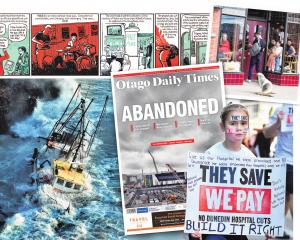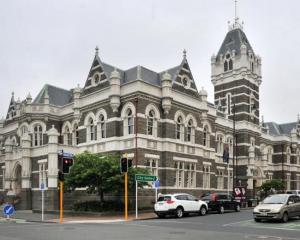Fossil fuels account for 66% of Dunedin's energy use, a study concludes.
Commissioned by the Otago Chamber of Commerce, the Dunedin Energy Baseline Study was jointly funded by the Dunedin City Council and the University of Otago's Centre for Sustainability.
Dunedin's energy inputs last year were about 10.5 petajoules.
Of the total, 58% was petrol and diesel, 31% electricity, 5% coal, 3% lpg, and 3% wood.
Fossil fuels accounted for 66% of energy used, and 86% of energy-related greenhouse gas emissions.
''To help put this in perspective, 10.5 petajoules is approximately the same amount of energy as contained in 300 million litres of unleaded petrol, which would be the volume of about 120 Olympic swimming pools'', report co-author Prof Gerry Carrington said in a press release.
''At a rough estimate, the value of energy inputs into the city for 2014 was in the region of $500 million, around 10% of Dunedin's GDP.''
Chamber chief executive Dougal McGowan said the study would be used to help plan Dunedin's future.
''We wanted to know how much we use as a city, where it comes from, and what it is used for.''
Research assistant Dr Cle-Anne Gabriel, who carried out most of the research, said the information was not easy to find, and the study was the first of its kind.
''I spent a lot of time interviewing local companies involved in supplying different fuels, digging into national energy data files, and looking through dusty boxes for fuel tax data.
''There are still a few bits of data missing, like how much firewood people gather themselves, but the big parts of the puzzle are in place.''
Chamber of Commerce energy committee chairman Scott Willis said the study suggested Dunedin was vulnerable to price volatility in imported fuels, and should try to reduce its reliance on them.
About 86% of the city's electricity supply was from renewable resources.
Solar generation increased last year by 280% to 119 solar connections.
Less than 0.1% of total energy was sourced from within the city's boundaries.
Dunedin City Council services and development general manager Simon Pickford said the study complemented the council's draft Energy Plan 1.0.
''We're enthusiastic about the report and very pleased about this successful joint project involving the council, university and Chamber of Commerce,'' he said.












